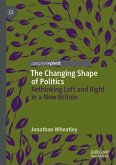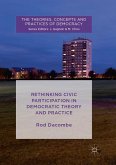This book is open access under a CC BY 4.0 license.
This book investigates the reasons behind the 2017 youthquake - which saw the highest rate of youth turnout in a quarter of a century, and an unprecedented gap in youth support for Labour over the Conservative Party - from both a comparative and a theoretical perspective. It compares youth turnout and party allegiance over time and traces changes in youth political participation in the UK since the onset of the 2008 global financial crisis - from austerity, to the 2016 EU referendum, to the rise of Corbyn - up until the June 2017 General Election. The book identifies the rise of cosmopolitan values and left-leaning attitudes amongst Young Millennials, particularly students and young women. The situation in the UK is also contrasted with developments in youth participation in other established democracies, including the youthquakes inspired by Obama in the US (2008) and Trudeau in Canada (2015).
This book investigates the reasons behind the 2017 youthquake - which saw the highest rate of youth turnout in a quarter of a century, and an unprecedented gap in youth support for Labour over the Conservative Party - from both a comparative and a theoretical perspective. It compares youth turnout and party allegiance over time and traces changes in youth political participation in the UK since the onset of the 2008 global financial crisis - from austerity, to the 2016 EU referendum, to the rise of Corbyn - up until the June 2017 General Election. The book identifies the rise of cosmopolitan values and left-leaning attitudes amongst Young Millennials, particularly students and young women. The situation in the UK is also contrasted with developments in youth participation in other established democracies, including the youthquakes inspired by Obama in the US (2008) and Trudeau in Canada (2015).
"Sloam and Henn present a very interesting argument and provide a clear empirical case for the youthquake during the 2017 General Election in the UK. ... Young British people tend to be interested in national politics and to have a sense of cosmopolitan belonging. To remind readers of that on an empirical basis is welcome and promising. Sloam and Henn succeed at providing an empirically rich and informed study ... ." (Simon Pistor, Intergenerational Justice Review, Vol. 5 (1), 2019)








